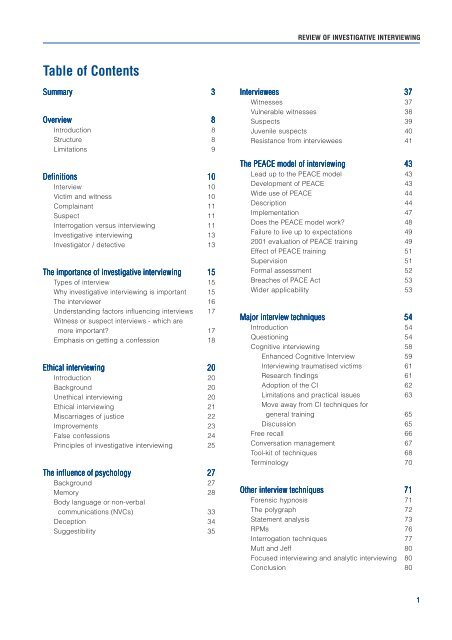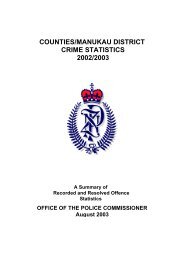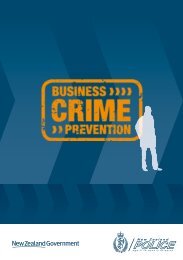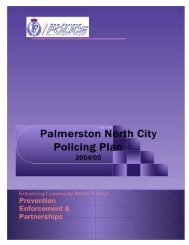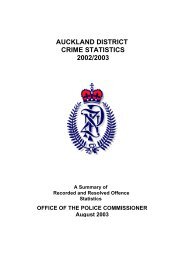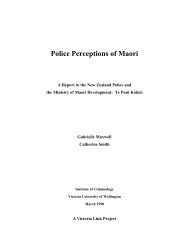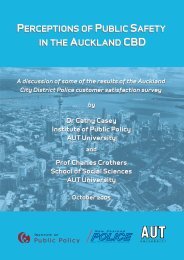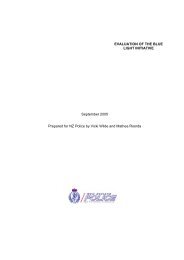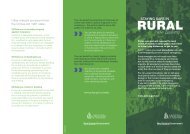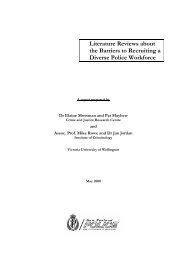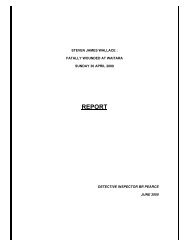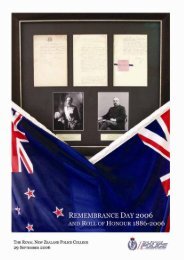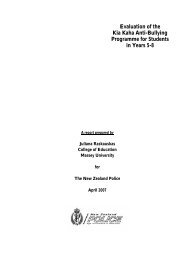Investigative interviewing: the literature - New Zealand Police
Investigative interviewing: the literature - New Zealand Police
Investigative interviewing: the literature - New Zealand Police
You also want an ePaper? Increase the reach of your titles
YUMPU automatically turns print PDFs into web optimized ePapers that Google loves.
REVIEW OF INVESTIGATIVE INTERVIEWING<br />
Table of Contents<br />
Summary 3<br />
Overview<br />
view 8<br />
Introduction 8<br />
Structure 8<br />
Limitations 9<br />
Definitions 10<br />
Interview 10<br />
Victim and witness 10<br />
Complainant 11<br />
Suspect 11<br />
Interrogation versus <strong>interviewing</strong> 11<br />
<strong>Investigative</strong> <strong>interviewing</strong> 13<br />
Investigator / detective 13<br />
The importance of investigative <strong>interviewing</strong><br />
15<br />
Types of interview 15<br />
Why investigative <strong>interviewing</strong> is important 15<br />
The interviewer 16<br />
Understanding factors influencing interviews 17<br />
Witness or suspect interviews - which are<br />
more important? 17<br />
Emphasis on getting a confession 18<br />
Ethical <strong>interviewing</strong><br />
20<br />
Introduction 20<br />
Background 20<br />
Unethical <strong>interviewing</strong> 20<br />
Ethical <strong>interviewing</strong> 21<br />
Miscarriages of justice 22<br />
Improvements 23<br />
False confessions 24<br />
Principles of investigative <strong>interviewing</strong> 25<br />
The influence of psychology 27<br />
Background 27<br />
Memory 28<br />
Body language or non-verbal<br />
communications (NVCs) 33<br />
Deception 34<br />
Suggestibility 35<br />
Interviewees<br />
37<br />
Witnesses 37<br />
Vulnerable witnesses 38<br />
Suspects 39<br />
Juvenile suspects 40<br />
Resistance from interviewees 41<br />
The PEACE model of <strong>interviewing</strong><br />
43<br />
Lead up to <strong>the</strong> PEACE model 43<br />
Development of PEACE 43<br />
Wide use of PEACE 44<br />
Description 44<br />
Implementation 47<br />
Does <strong>the</strong> PEACE model work? 48<br />
Failure to live up to expectations 49<br />
2001 evaluation of PEACE training 49<br />
Effect of PEACE training 51<br />
Supervision 51<br />
Formal assessment 52<br />
Breaches of PACE Act 53<br />
Wider applicability 53<br />
Major interview techniques 54<br />
Introduction 54<br />
Questioning 54<br />
Cognitive <strong>interviewing</strong> 58<br />
Enhanced Cognitive Interview 59<br />
Interviewing traumatised victims 61<br />
Research findings 61<br />
Adoption of <strong>the</strong> CI 62<br />
Limitations and practical issues 63<br />
Move away from CI techniques for<br />
general training 65<br />
Discussion 65<br />
Free recall 66<br />
Conversation management 67<br />
Tool-kit of techniques 68<br />
Terminology 70<br />
O<strong>the</strong>r interview techniques 71<br />
Forensic hypnosis 71<br />
The polygraph 72<br />
Statement analysis 73<br />
RPMs 76<br />
Interrogation techniques 77<br />
Mutt and Jeff 80<br />
Focused <strong>interviewing</strong> and analytic <strong>interviewing</strong> 80<br />
Conclusion 80<br />
1


